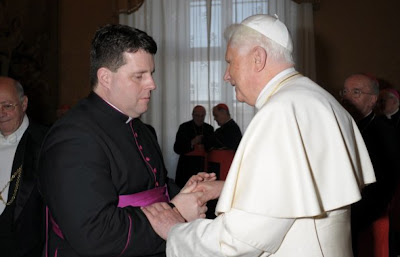I was pleased to discover recently that EWTN will be airing live quite a few of the events when Pope Benedict XVI travels to England next week for the beatification of John Cardinal Newman.
Here’s a link to the TV page on EWTN, with a listing about halfway down of the papal events in England that will be televised.
We’re planning to watch some of this at our house; we’re fortunate to have EWTN on our satellite television service. But I imagine it will also be streamed live on the Internet.
Are you planning to watch any of the events related to the beatification of Cardinal Newman? Have you seen any other television or internet outlets planning to air the events related to the beatification?

